BKCGS Presents: Andrea Roberto, Classical Guitar
Prospect Heights
Sun, February 25, 2024, at 6:00 PM,
EST
- Bring your own drinks
- Alcoholic and non-alcoholic drinks provided
-
Wheelchair access
- Not wheelchair accessible
This is a groupmuse
A live concert in a living room, backyard, or another intimate space. They're casual and friendly, hosted by community members.
Hosts
Please join us in welcoming classical guitarist Andrea Roberto to the A4 Collective in Prospect Heights, Brooklyn to perform for our 2024 Winter Concert Series! Andrea is in town from Italy and has prepared beautiful, wide ranging, and virtuosic program to share in an intimate setting. Don't miss this concert!
Here are the details:
👉2/25/2024
👉Doors open at 6:00 pm
👉Music at 6:30 pm
👉A4 Collective, 636 Dean St #2F, Brooklyn, NY 11238
BYOB and BYOSnacks! See you there 🎸
About:
Italian Guitarist, Andrea Roberto's triumph in the 2019 Parkening International Guitar Competition, the world's preeminent competition of its kind, has moved him into the forefront of the classical guitar world.
Andrea distinguished himself at the Giordano Conservatory under Maestro Sandro Torlontano where he obtained the Bachelor degree at the age of 14. Subsequently, He began to display his prodigious talent and refined his artistry under the guidance of Maestro Aniello Desiderio in Koblenz (Germany) and Carlo Marchione in Maastricht (Netherlands).
Read more at: https://www.andrearobertoguitar.com/
What's the music?
M.Giuliani (1781-1829)
– Rossiniana no.6 op.124
J.Dowland (1563 -1626)
– The frog Galliard
– John Smith his almain
– Allemande From pleasures
M.Praetorius (1571 - 1621)
– from Suite in D:
Courrante-Ballet-Gavotte- Spagnoletta-Volte
J.Rodrigo (1901 - 1999)
– Fandango
I.Albeniz (1860 - 1909)
– Cordoba
– Sevilla
F.Tarrega (1852 - 1909)
– Variations on the Carnival of Venice
Where does this music come from?
Mauro Giuliani:
In 1820 Italy was a sterile ground for instrumental music , being the opera the prominent genre. It was the time of the divas , the most expensive castratos, it was the Rossini mania. Giuliani had to come up with a workaround in order to make himself known and had the brilliant idea of bringing the opera into those intimate context where the guitar used to play. This is the genesis of the Rossinianas, a collection of the most famous arias by Rossini transcribed for guitar. The piece constitutes in an introduction , the arias followed by variations and the fiery finale where the tension built up during the piece will be released at the very end.
John Dowland :
The most gifted English composer from the renaissance period , he tried so desperately to secure the prestigious position as court lutenist for queen Elizabeth who disregarded him for his catholic orientation. His music reflects the melancholy of the composer , tinged at times with lively rhythms and profound tenderness.
Michael Praetorius
Praetorius was born in Thuringia and received a Lutheran upbringing. Since early age devoted his life to theological studies as well as priesthood. His motto was “heaven is my fatherland”. When a student in Frankfurt he developed such a staggering ability for the organ that that the wealthy Duke of Braunschweig, saxony, decided to make him join his court chapel ensemble, first as an organist and then as a kappelmeister. Subsequently the duke ordered the construction of the Gröningen organ , the 3rd largest in Germany and organised a huge festival for the testing of the instrument , inviting as many as 50 organists all over Europe. This is when John Dowland and Praetorius met and got acquainted with each other musical style. Praetorius became an organist specialist writing extensively about organ technique in his theoretical treaty - The Syntagma musicum. Praetorius is known for his several sacred works and for the only secular work called - Terpsichore, over 300 instrumental dances dedicated to the muse of dancing. Tonight a collection has been chosen which will feature 4 dances from French origin (Courante, Ballet, Gavotte and Volte) and 1 from Spanish Origin (Spagnoletta).
Joaquin Rodrigo
Considered one of the most prominent composer for guitar, the fandango was dedicated to Andrea Segovia in 1954.
Originally an 18th century Spanish seductive dance that was performed in couple from all social classes. Rodrigo’s fandango has 3 contrasting parts: a rhythmic beginning , a lyrical middle part and a virtuoso ending.
Isaac Albeniz
Albeniz is considered the founder and the most influential personality of the national Spanish school whose aim was to find a musical identity starting from popular roots. When approaching pieces like Cordoba and Sevilla it strikes how the composer was able to blend the two different cultures that coexist since a long time in souther spain , that is , Spanish folklore influenced by flamenco and the Arabian culture.
Francisco Tarrega
Considered the father of the modern classical guitar technique , he was able to get ahold of the newly constructed Torres guitar and figured out that the technique needed to be updated in order to fully exploit Torres qualities. The new technique is rich in sound, vibratos, glissandos and much more lyricism in the middle lower range of the instrument. The variations on the carnival of Venice feature an introduction , a theme based on the Neapolitan folk song “O mamma mamma cara” followed by 8 variations that show case the most virtuoso techniques.
Location
Exact address sent to approved attendees via email.
This is a groupmuse
A live concert in a living room, backyard, or another intimate space. They're casual and friendly, hosted by community members.
Hosts
Attendees




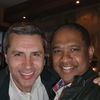


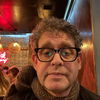

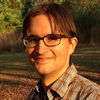
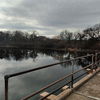








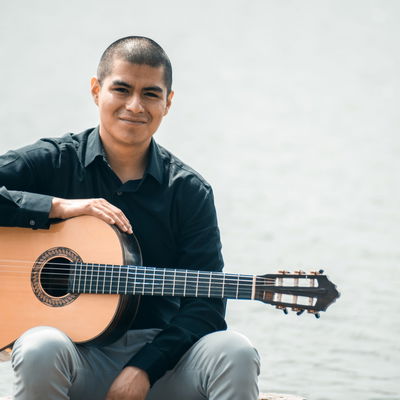

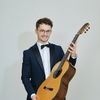
 Continue with Facebook
Continue with Facebook
 Continue with Google
Continue with Google
 Continue with Apple
Continue with Apple
Comments
Comment sections are only for participants.